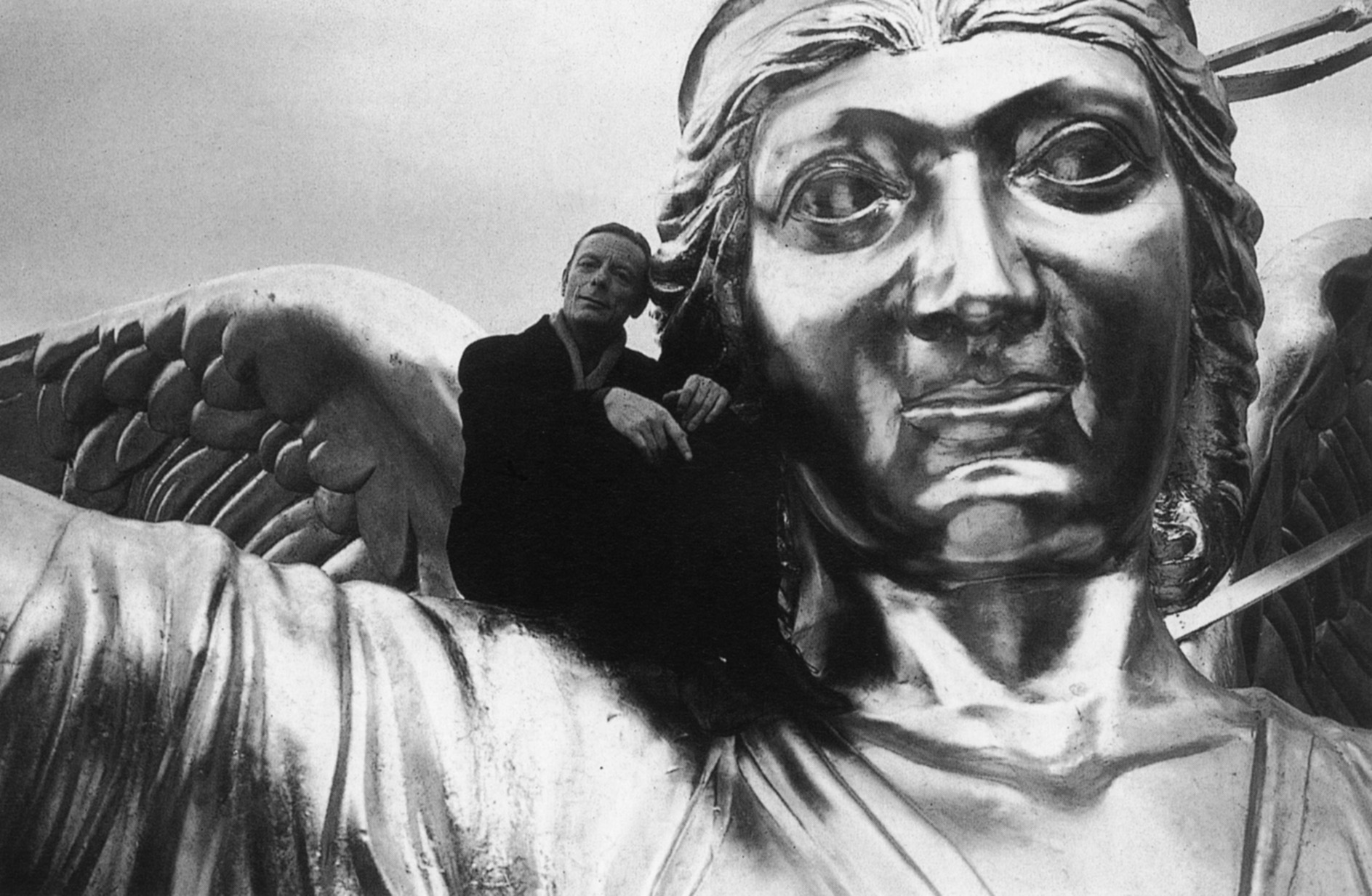| quarta-feira, abril 06, 2005 |
| Saul Bellow (1915 - 2005) |

"O vencedor do Prémio Nobel da Literatura Saul Bellow morreu esta terça-feira aos 89 anos. Para além do Nobel, o escritor norte-americano venceu também o Pulitzer, bem como o National Book Award, galardão que obteve em três ocasiões.
O escritor norte-americano Saul Bellow, Prémio Nobel da Literatura em 1976, morreu na terça-feira na sua residência no estado de Massachussetts, aos 89 anos, na sequência de doença prolongada.
Bellow, que se notabilizou por obras como «Herzog», «Humboldt's Gift» e «Adventures of Augie March», pertencia a uma geração de escritores judeus que surgiu a seguir à II Guerra Mundial, da qual fizeram também parte Philip Roth, Isaac Bashevis Singer e Bernard Malamud.
Para além do Nobel ganho pela «compreensão do ser humano e a sua subtil análise da cultura contemporânea» expressa na sua obra, o escritor conseguiu no mesmo ano o Pulitzer pela obra «Humboldt's Gift».
Bellow, diplomado em sociologia e antropologia, foi ainda o primeiro escritor a ganhar o galardão norte-americano National Book Award por três vezes (1954, 1965 e 1971).
Antes de chegar à fama, o escritor descendente de imigrantes russos, nascido em 1915, começou por fazer crítica literária, cobrando dez dólares por cada artigo que escrevia.
A sua vida literária foi marcada por temas relacionados com a morte, algo que esteve bastante próximo de acontecer a Bellow primeiro aos oito anos e depois em 1995.
Bellow, que desde muito novo sentiu a vocação de escritor embora a mãe ambicionasse para ele um futuro diferente (gostaria que fosse um estudioso do Talmude judaico), foi casado por cinco vezes e tinha quatro filhos. Faleceu na companhia da sua quinta esposa e da filha que teve em 1999." in Tsf Online
Discurso de aceitação do Prémio Nobel, em 1976:
"Your Majesties, Your Royal Highnesses, Ladies and Gentlemen,
There are not many things on which the world agrees but everyone I think acknowledges the importance of a Nobel Prize. I myself take most seriously the Nobel Committee's recognition of the highest excellence in several fields and I accept the honor of this award with profound gratitude.
I have no very distinct sense of personal achievement. I loved books and I wrote some. For some reason they were taken seriously. I am glad of that, of course. No one can bear to be ignored. I would, however, have been satisfied with a smaller measure of attention and praise. For when I am praised on all sides I worry a bit. I remember the scriptural warning, "Woe unto you when all men shall speak well of you." Universal agreement seems to open the door to dismissal. We know how often our contemporaries are mistaken. They are not invariably wrong, but it is not at all a bad idea to remember that they can't confer immortality on you. Immortality - a chilling thought. I feel that I have scarcely begun to master my trade.
But I need not worry too much that all men will speak well of me. The civilized community agrees that there is no higher distinction than the Nobel Prize but it agrees on little else, so I need not fear that the doom of universal approval is hanging over me. When I publish a book I am often soundly walloped by reviewers - a disagreeable but necessary corrective to selfinflation.
When the Committee's choice was announced and the press rushed at me (a terrifying phenomenon!) and asked how I felt about winning the Nobel Prize in literature, I said that the child in me (for despite appearances there is a child within) was delighted, the adult skeptical. Tonight is the child's night entirely. On Sunday I will have some earnest things to say from the pulpit. Sunday is the best day for dark reflections but the child's claim to this Friday night will not be disputed." |
| posted by George Cassiel @ 12:51 a.m. |
|
|
|
|
|
GEORGE CASSIEL
Um blog sobre literatura, autores, ideias e criação.
_________________
"Este era un cuco que traballou durante trinta anos nun reloxo. Cando lle
chegou a hora da xubilación, o cuco regresou ao bosque de onde partira.
Farto de cantar as horas, as medias e os cuartos, no bosque unicamente
cantaba unha vez ao ano: a primavera en punto."
Carlos López, Minimaladas (Premio Merlín 2007)
«Dedico estas histórias aos camponeses que não abandonaram a terra, para encher os nossos olhos de flores na primavera»
Tonino Guerra, Livro das Igrejas Abandonadas |
| |
|
|









